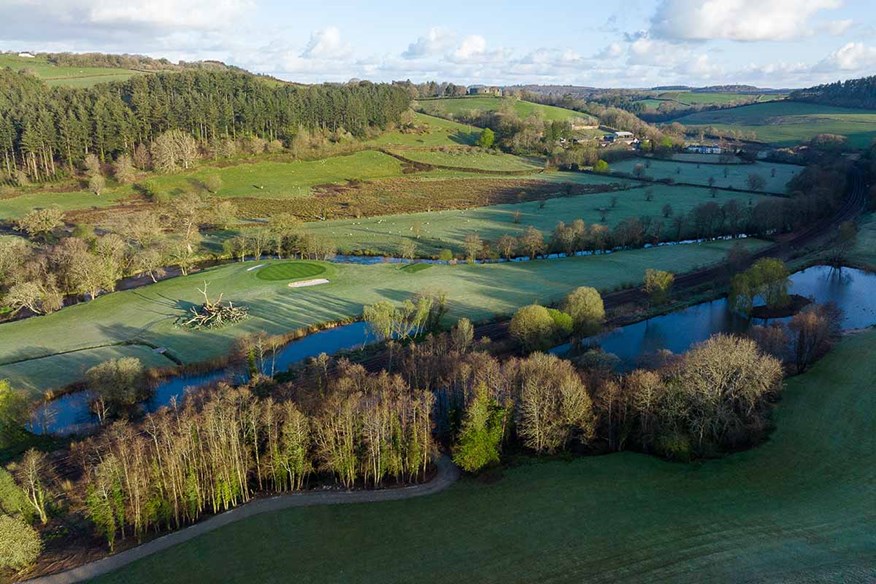Welcome to Gillyflower – the Cornwall golf course you can actually eat!
Published:
Gillyflower Golf Course is a new course in Cornwall with links to the Eden Project, bringing golfers closer to nature in the wildest way imaginable…
When you drive through the sleepy town of Lostwithiel in Cornwall, it’s easy to miss Britain’s newest and greenest golf course. There’s no mention of Gillyflower Golf Course on any of the signposts, just a reminder of the former 18-hole course that once stood in its place. You actually drive past the old clubhouse and hotel, down a narrow dirt track where there’s little activity or fanfare to suggest that this is the first-ever golf course to be revived by the team behind the Eden Project and The Lost Gardens of Heligan.
The golfers’ entrance is hidden away like some best-kept secret, tucked behind a dense row of hedges which eventually open out to reveal a coffee van operating as a pro shop and halfway house beside the 1st fairway. Golfers are made to wait here until it’s safe to begin the 150-yard walk back to the tee.
The clubhouse and practice facilities haven’t been built yet and the closest thing to a changing room appears to be a Portakabin toilet in the car park. It all feels a little incomplete right now, but you can sense something special is happening here. You just have to search a little harder to see it.

For decades, golf courses have been wedded to the same traditions and principles, bound by a cocktail of chemicals to maintain their playability and visual appeal. But Gillyflower is promising something far different, a blueprint for the future, if you like, where every square metre of non-playing surface is being used to grow crops and encourage flora and fauna. Areas of rough have been expanded and left permanently uncut to create wildlife corridors, while each hole has been themed with an unusual crop of fruit, nuts or vegetables.
There’s a lot to take in, but what they are proposing and delivering has never been done before in the golf industry. And it feels hugely transformative. The course has been carved out of the remains of the Lostwithiel Golf & Country Club, which closed in 2014 with 360 members on its books. It was quickly reclaimed by scrub and gorse and could have been lost forever without the intervention of Sir Tim Smit, co-founder of the Eden Project, and his son, Alex, who both live locally and fell in love with the land.
RELATED: How a former LET star saved her local club
“We bought it on the agreement that if we couldn’t find a better use for the land, we would continue with the golf course and justify that by doing something no one else is doing,” explains Alex. “It was a fairly low-risk purchase but very quickly we realised there was something special about the place.”
“It’s like a collection of the greatest hits of holes,” Tim says. “As soon as you walk onto the course, you see Restormel Castle looking down on it and then you’ve got a beautiful valley with the River Fowey sweeping through it. I was completely bewitched by it, but it felt tired and bruised.
“We realised that perhaps the only skills that could get it back were the exact skills we had, which were landscaping and understanding of horticulture and a love of nature. I rather liked the idea, a bit like with my Lost Gardens of Heligan, of creating something that is really world class in a provincial area, because no one can imagine you doing something like that.”
After soliciting past members for advice, the Smits divided the site in two, keeping the nine riverside holes which overlook Restormel Manor, the residence of the Prince of Wales and Duchess of Cornwall, and converting the rest into farmland and 50 acres of legacy orchards and artisanal gardens.

They then hired the man who designed the original course, 32 years ago, as head greenkeeper, and set about creating a nine-hole, 18-tee layout with an ecological twist.
It’s taken the best part of seven years, but almost every area of unused land now serves a different purpose. The fruits of their labour are now starting to spring up along the sides of the greens and fairways, creating a cornucopia of colour, fragrances and edible treats.
RELATED: How are golf courses mapped for GPS devices?
The rough bordering the 1st fairway has been lined with 35 Gillyflower desert apple trees, the finest Cornish variety, according to Alex, best eaten from Christmas Day. The 2nd will soon have a tea plantation on the hillside, a few hundred yards away from the Cornelian cherry trees which have been planted on the slope leading to the 12th tee. There’s even talk of creating a vegetable patch in front of the 8th green and inviting members to hit dozens of golf balls disguised as seed bombs later this summer.
“When I think about how it used to be I’m lost for words,” admits Rob Porrington (pictured above), the Head Greenkeeper. “There hadn’t been any investment in the place for probably 15 years, so it does feel like a new course. We’re working to preserve nature now whereas traditionally we would have blitzed it without thinking about the consequences.”
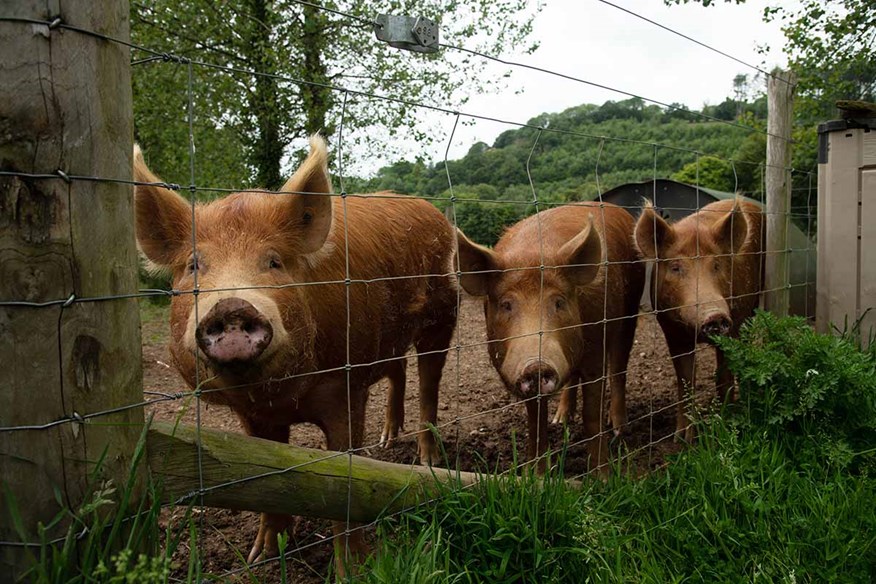
Rob has almost gone an entire year without watering the fairways and spends half his time maintaining the course and the other half managing wildlife projects. He’s even assembled a small enclosure, beside the 4th and 14th fairway, for three Tamworth pigs which serve as natural lawnmowers. Other features have been turned into signatures, most notably the 500-year-old oak tree on the 5th hole which was torn down in a storm last year.
“It’s probably the main feature of the course, a bit like the Eisenhower Tree (at Augusta) used to be,” explains Joe Micklethwaite, Director of Golf. “Once we decided to leave it, we planted loads of wildflower and poppy seeds to create an apple effect from above.”
RELATED: Best Golf Courses in Cornwall
During the six-year restoration, 4,800 stray balls were retrieved in lakes, bushes and from up trees, all of which are now made available for members to reuse should they lose their ball in an ‘environmentally-sensitive’ area. Alex estimates that more than 4,500 trees have been added across both sides of the estate, including 1,800 stone-fruit trees and the largest almond avenue in Britain.
Some of these will take up to 40 years to become commercially viable, but Alex sees the potential in creating the world’s first edible golf course. Plans are already in place to turn apples into cider and plums and cherries into liquor as early as next year.

“I like the idea of a membership which gives you access to the golf course but also gives you the first six bottles of cider created from the harvest of the Cornish apple trees,” smiles Alex. “We refer to our golfers as partners, rather than members, and we want to bring them into the wider project.
“Honey is another big thing. We’ve got manuka hedges and we’ll be planting tea on the 2nd. We’ll be harvesting camellia oil, rather than conventional tea, but the idea is to have a product at the end. It’s about adding value to the golfer’s experience and also bringing attention to the fact that nature’s got equal standing on the course.”
RELATED: Why Royal Norwich is shaping the future of golf clubs
To help mitigate some of the costs, a 10 percent tax has been added to memberships to help fund more environmental projects in the future. They are now working towards becoming pesticide free and have even come up with an ingenious solution to keep badgers away from manicured areas of the course – by using lion excrement.
Alex prefers to draw attention to the far end of the property, where they’ve planted the largest mulberry orchard in Britain to memorialise the 1644 Battle of Lostwithiel. “If you become a greenkeeper here, you have to be willing to plant trees and look after vegetables,” he says. “If you’re not willing, you’re not welcome. Everyone gets their hands dirty.”
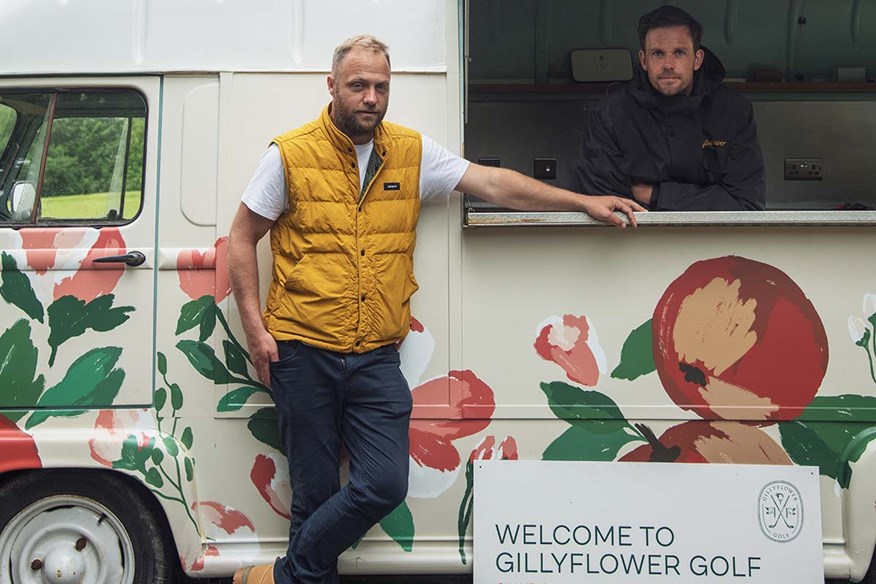
Efforts are also being concentrated on a one-acre potager garden, which has been designed to resemble The King’s Kitchen Garden, near the Palace of Versailles. He likens it to a tasting garden for chefs, who will soon be able to sample and buy up to 100 different varieties of rare heritage vegetables like carrots, beans, asparagus, oca, shallots and rhubarb which are unfamiliar to British palates.
“There’s not a single vegetable in here that relies on any fossil fuel energy – and they won’t succumb to modern day agricultural diseases,” says Alex, excitedly.
It’s easy to buy into what he is proposing, such is his enthusiasm for bug hotels, pollinator gardens and providing seasonal produce unique to Cornwall. The cost has been considerable, but what they’ve managed to achieve so far is as much a revolution as an evolution, predicated on nature.
Even likening it to a ‘hidden gem’ is like describing Augusta National as just a golf club. There’s so much going on that it better resembles a course of extremes.

By way of example, the 2nd hole should probably come with a health warning for vertigo sufferers. It’s only 144 yards off the back tees, but the drop is about 200ft to a semi-blind strip of green which almost backs onto a railway line. Trying to pick the right club is almost as difficult as the calf-burning walk back up the hill if you get it wrong.
The next hole is like a supersized version of crazy golf. The tee box sits beside the railway tracks and forces you to hit over a sprawling water hazard towards the most cambered fairway in the country. From the highest point, the elevation change is easily 80ft, possibly more. If you slice the ball, you can envisage a scenario where the number of lost balls exceeds the number of Stableford points you have after the first three holes. Joe assures us it gets easier – and it does.
RELATED: We played the world’s hardest par-3 course
The second nine, known as the Short Course, doesn’t extend beyond 2,000 yards and features four driveable par 4s, plus a 397-yard par 5. The severity of the slopes still have the potential to infuriate the luckless golfer, but they do help to create two very distinctive nines, so it never feels like you’re playing the same hole twice. And as word starts to spread, more people are taking notice.
“A lot of the former members want to come back,” says Dave Saget, who has just rejoined. “We never would have left had it not gone bust.”
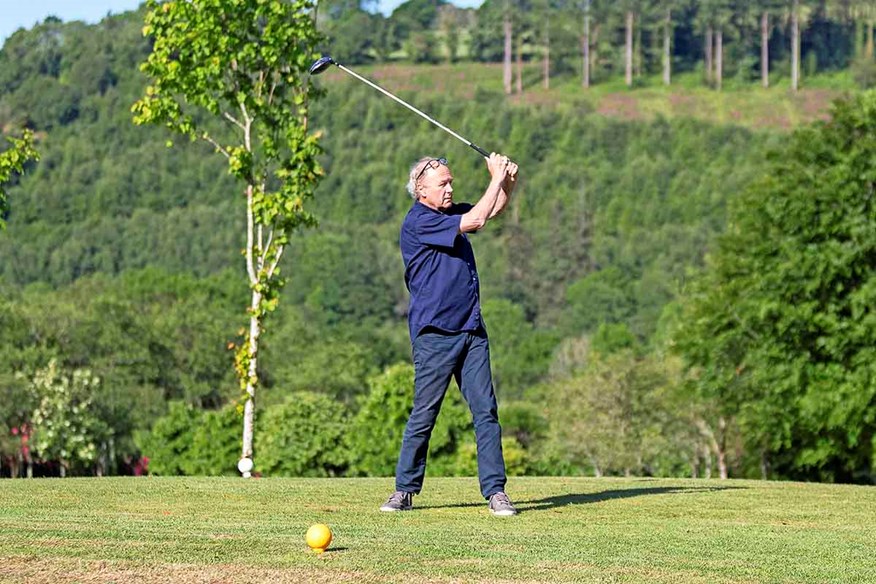
Tim (pictured above) is so encouraged that he believes Gillyflower could become one of the most beautiful leisure and learning facilities in Europe, which is why he is so desperate to build an Education Centre for Horticulture, Agronomy and Cookery with a micro-brewery and distillery, along with a café, shop and 19 eco lodges. He still hopes to get his way, but a planning application was rejected in April by the local council after hundreds of angry residents objected, claiming its prominent position would spoil precious views from the town.
Tim says they will appeal, but the more pressing issue is that the course will have to close on October 31 due to their planning application being only temporary. The hope is that there will be a fully functioning bar, changing room and clubhouse once they are allowed to reopen on March 1, but until then the only incoming revenue is limited to membership renewals and green fees, which start from £13 for nine holes and £20 for 18.
So far at least, cash flow doesn’t appear to be an issue and 350 members have already signed up. There is an acceptance that the project is still in its embryonic stage. Alex is on site every day, walking the property repeatedly to find new and creative ways for nature to thrive without affecting the playability.
RELATED: How OceanTee are making golf more sustainable
Discussions are currently being had about whether they can cut some of the rough back, “for reasons of self-preservation”, without damaging wildlife corridors. Neither Alex, nor Tim, claim to have all the answers yet, but they are committed to tackling golf’s notoriously ‘ungreen’ image and finding solutions which are easy on the eye and planet. Tim is already aiming high.
“I want Gillyflower to be famous for the way it is managed,” he declares. “My hope is that we are going to make people smile because each hole is horticulturally different. If I was dreaming, I would like the golf course to be considered a beacon of sustainable golf course management in the wildest sense.
“We want to make life as simple as possible for the great greenkeepers in this country, and also give them some brain food by adopting best practice from all over the world and then sharing it with them. We know we’re not there yet, so my obsession right now is to get the course into really good shape.”
Ultimately, they accept that there will be some resistance to the methods they are adopting, but they want to prove that golf and nature can co-exist. Alex believes there is now a willingness within the industry to change the habits of a lifetime.

“We’re not trying to change the world of golf here,” says Alex. “But I have been gobsmacked by how many people are interested in what we are doing. And we feel we’re capable of demonstrating that you can have a good quality product while doing an awful lot more with sustainability.
“We’ve set up a business called thegreensfee.com and over the next 12 months we’re looking to create an offering that other golf clubs can implement, using the links we have in place, so they can mitigate some
of their own carbon footprint and add some value to their golf course and community.
“I think golf, more than any other sport on the planet, has a responsibility to get ahead of the curve because of the amount of land that courses take up. And if we can inspire local courses and beyond to follow us on this journey, golf will be in a far better place.”
READ NEXT: Join our Drive for Defibs campaign
-
 Gillyflower Golf Course is unlike anything we've ever seen before.
Gillyflower Golf Course is unlike anything we've ever seen before.
-
 Alex Smit with Director of Golf Joe Micklethwaite.
Alex Smit with Director of Golf Joe Micklethwaite.
-
 The 5th hole at Gillyflower Golf Course features a 200-year-old fallen oak tree.
The 5th hole at Gillyflower Golf Course features a 200-year-old fallen oak tree.
-
 Gillyflower Golf Course has links to the Eden Project and The Lost Gardens of Heligan.
Gillyflower Golf Course has links to the Eden Project and The Lost Gardens of Heligan.
-
 The 2nd hole at Gillyflower Golf Course is one of the most extreme par-3s in England.
The 2nd hole at Gillyflower Golf Course is one of the most extreme par-3s in England.
-
 The 1st hole at Gillyflower Golf Course is lined with Gillyflower apples.
The 1st hole at Gillyflower Golf Course is lined with Gillyflower apples.
-
 Head greenkeeper Rob Porrington is also the designer of the original course at Gillyflower.
Head greenkeeper Rob Porrington is also the designer of the original course at Gillyflower.
-
 Sir Tim Smit bought Gillyflower Golf Course in 2015.
Sir Tim Smit bought Gillyflower Golf Course in 2015.
-
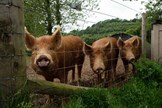 The Tamworth pigs at Gillyflower are called birdie, bogey and eagle.
The Tamworth pigs at Gillyflower are called birdie, bogey and eagle.
